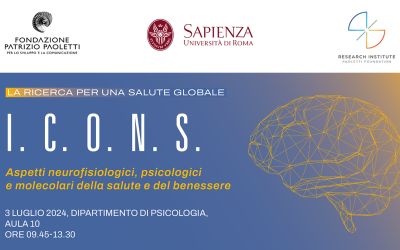Research
Global Health
What is the definition of health proposed by the WHO in 1948? Why can it be considered a revolutionary definition?
In the vast and multifaceted panorama of global health, the definition of health proposed by the World Health Organization (WHO) in 1948 still resonates today as a guiding beacon for professionals and researchers: “Health is a state of complete physical, mental, and social well-being and not merely the absence of disease or infirmity.” This definition, visionary and cutting-edge, formulated over seventy years ago, retains remarkable relevance and freshness, as it anticipates an understanding of health that goes beyond the purely physical dimension, including mental and social well-being. The concept of “complete physical, mental, and social well-being” emphasizes the importance of a holistic approach to health, where every aspect of an individual’s life is considered interconnected and influential on overall health. This holistic vision implies that well-being cannot be achieved if one of the aspects is neglected or out of balance, underscoring the importance of an integrated approach to personal care.
This perspective has been fundamental in orienting health policies and medical practices towards a more inclusive and person-centered approach, recognizing the individual in their entirety and complexity. The WHO’s definition also paved the way for considering environmental, social, and economic factors that influence health, highlighting how well-being is a multi-level phenomenon that intersects the individual with their context.
Moreover, this definition has contributed to a paradigm shift in health research and intervention, shifting the focus from merely curing diseases to promoting health and prevention. This has involved broadening health strategies to include health education, the promotion of healthy lifestyles, and the implementation of public policies that favor overall well-being.
Finally, the concept of health defined by the WHO in 1948 is a constant reminder of the importance of an inclusive and universal approach to health, considering each person in their totality and uniqueness, promoting global health as a fundamental right and collective goal to strive for together.
How many dimensions of the person does the concept of global health consider?
But what exactly do we mean when we talk about “global health status”? This concept extends far beyond the simple physical dimension, embracing an integrated vision that considers the individual in all their dimensions: physical, psychological, social, and spiritual. It is a vision that recognizes the complexity of the human being and the interdependence of the various aspects of their life, highlighting how well-being in one dimension can positively or negatively influence the others. This multidimensional approach pushes us to consider health not as a static goal but as a dynamic process, a continuous journey towards balance and harmony between the different components of being.
What is meant by health and well-being according to the 2030 Agenda for Sustainable Development?
The 2030 Agenda for Sustainable Development is a global action plan adopted by the United Nations in 2015, establishing 17 goals (Sustainable Development Goals, SDGs) to promote human prosperity, protect the environment, and ensure peace and justice for all by 2030. Within this Agenda, health and well-being are further emphasized as fundamental pillars for equitable and sustainable progress. The Agenda underscores the importance of ensuring healthy lives and promoting well-being for all at all ages, recognizing that health is a fundamental human right and an essential goal for sustainable development.
What responsibilities does embracing this concept of global health entail?
Embracing the concept of global health described entails a commitment on two fronts: personal and social. On a personal level, this approach requires an active assumption of responsibility towards one’s health, encouraging each of us to become a guardian of our well-being through conscious choices and healthy lifestyles. This means not only avoiding harmful behaviors but also adopting daily practices that favor physical, mental, and social well-being, recognizing how every aspect of our life directly influences our health.
On a social level, accepting this concept of health implies a collective commitment to reducing health inequalities and ensuring universal access to healthcare and health services. It means working together to build more inclusive and equitable health systems that not only treat diseases but actively promote the health and well-being of all society members. This collective responsibility also includes supporting public policies that favor healthy environments, promoting health education, and supporting research and innovation in global health.
Additionally, assuming responsibility on a social level involves promoting global health as a common goal that transcends national borders. Recognizing that health problems in one country can influence global well-being, it is essential to collaborate internationally to address common health challenges, such as pandemics, antibiotic resistance, and the effects of climate change on health.
In this context, the Patrizio Paoletti Foundation, with its more than twenty-year commitment to research and the promotion of global health, positions itself as a key player in spreading this holistic vision of health, working tirelessly for a future where every individual can reach their full potential of well-being.
- Bazzano, A. N., Martin, J., Hicks, E., Faughnan, M., & Murphy, L. (2017). Human-centred design in global health: a scoping review of applications and contexts. PloS one, 12(11), e0186744.
- Huber, M., Knottnerus, J. A., Green, L., Van Der Horst, H., Jadad, A. R., Kromhout, D., … & Smid, H. (2011). How should we define health? Bmj, 343.
- Jacobsen, K. H. (2022). Introduction to global health. Jones & Bartlett Learning
- Kickbusch, I. (2012). 21st century determinants of health and wellbeing: a new challenge for health promotion. Global Health Promotion, 19(3), 5-7.
- Kumar, S., & Preetha, G. S. (2012). Health promotion: an effective tool for global health. Indian Journal of Community Medicine, 37(1), 5-12.
- Patel, V. (2014). Why mental health matters to global health. Transcultural psychiatry, 51(6), 777-789.
- https://www.epicentro.iss.it/globale/salute-globale (Consultato ad aprile 2024)
- https://asvis.it/public/asvis2/files/Eventi_Flash_news/CartaSaluteGlobale-2022.pdf (Consultato ad aprile 2024)
- https://www.saluteinternazionale.info/2012/01/la-salute-come-capacita-di-adattamento-2/?pdf=6856 (Consultato ad aprile 2024)
- Photos by Mohamed Nohassi su Unsplash
Be part of the change. Responsibly sharing content is a gesture that signifies sustainability
Let's train emotional intelligence: what emotion does this article arouse in you?
You might be interested in
Search by category










